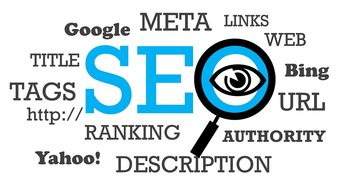When it comes to improving your website's visibility and search engine rankings, keyword optimization is a critical component. Keywords are the foundation of search engine optimization (SEO), and they play a significant role in how search engines understand the content on your website. Here's a comprehensive guide on how to optimize keywords on your website effectively.
1、Identify Your Target Keywords:
Start by identifying the keywords that are most relevant to your business, products, or services. Use tools like Google Keyword Planner, SEMrush, Ahrefs, or other Keyword Research tools to find high-volume, low-competition keywords. Make sure you choose keywords that potential customers might use when searching for businesses like yours.
2、Understand User Intent:
Keyword optimization isn't just about stuffing your content with keywords; it's about understanding user intent behind each search term. Consider the intent—is the user looking for informational content, seeking a product to buy, or needing service-related help? Align your keywords with user intent to provide the most relevant results.
3、On-Page SEO:
Once you have your target keywords, it's time to implement them throughout your website. This process is known as on-page SEO.
a. Meta Tags:
Ensure your title tags and meta descriptions include your primary keywords. These elements not only help search engines understand what your page is about but also encourage users to click through to your site in the search results.
b. Headers and Subheaders:

Use H1, H2, and H3 headers to structure your content and include keywords where appropriate. This helps both users and search engines follow the main points of your content.
c. Content:
Your website's content should naturally incorporate keywords without looking spammy. The keyword placement should feel organic within the context of the content.
d. URLs:
URLs that include keywords can give search engines more insight into the page's content. Keep them short, clear, and keyword-rich.
4、Content Creation:
Regularly creating high-quality, original content that includes your target keywords can significantly improve your SEO performance. Blog posts, articles, infographics, and videos are great ways to provide valuable information to your audience while enhancing your keyword strategy.
5、Internal Linking:
Use internal links to connect different pages on your website. When linking between pages, use anchor text that includes your target keywords to help search engines understand the context and relationship between different pieces of content.
6、Image Optimization:
Don't forget about images. Always include descriptive file names and alt text that contain your keywords. This helps search engines index images and can contribute to better rankings in image search results.
7、Monitor and Adjust:
SEO is an ongoing process. Regularly monitor your keyword rankings using tools like Google Analytics and Google Search Console. If certain keywords aren't performing as expected, adjust your strategy accordingly. Stay updated with the latest SEO trends and algorithm changes to maintain optimal performance.
8、Avoid Keyword Stuffing:
Overusing keywords (known as "keyword stuffing") can lead to penalties from search engines. Write naturally and for the user, ensuring that keyword usage feels organic and doesn't disrupt the reading experience.
9、Local SEO:
If your business relies on local customers, include geographic keywords in your website content, meta tags, and titles. This can help you rank higher in local search results.
10、Mobile Optimization:
With more people accessing the internet via mobile devices, it's essential to ensure your website is mobile-friendly. Mobile optimization plays a significant role in how search engines rank your site, so make sure your website's design and keyword implementation are optimized for mobile users.
By following these steps, you can enhance your website's keyword optimization and improve its visibility in search engine results pages (SERPs). Remember, consistency and quality are key when it comes to SEO. Invest time in creating valuable content, monitoring your keyword strategies, and staying updated with SEO best practices to achieve long-term success in your online presence.
评论列表 (0条)